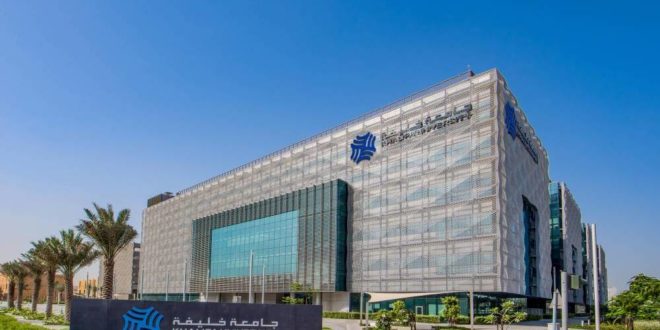A research team from Khalifa University of Science and Technology has developed a new model for converting harmful substances from fossil fuels into clean energy, and benefiting from harmful hydrogen sulfide, one of the wastes resulting from the oil and gas industries in the UAE, in generating energy in a clean and sustainable way.
And the research team, which included a graduate of the PhD program Habibullah Oladipo, under the supervision of Dr. Giovanni Balmizzano and Dr. Khaled Al-Ali, stated that they searched for the best ways to produce hydrogen from hydrogen sulfide by liberating hydrogen, which is a source of emissions-free fuel. From hydrogen sulfide, and thus, the toxic substance becomes harmless, in addition to benefiting from free hydrogen in fuel cells and power plants to obtain clean electrical energy.
The team explained that the continuous dependence on fossil fuels in energy production is considered an unsustainable solution, especially in light of the increasing demand for energy resulting from industrial development and increasing global population growth. It also leads to energy security problems, which are represented in the instability of oil, coal and natural gas prices.
They stated that the hydrogen separation process is difficult, as it requires a large amount of energy and materials of high cost, and that the separation technologies available at the present time are also limited and expensive.
Habibullah said, “Reliance on fossil fuels has led to a significant increase in the amount of greenhouse gases emitted. Therefore, alternative sources of energy must be searched, especially in light of the increasing global demand for them. Sustainable hydrogen production may be a suitable alternative due to its high energy value and being safe for energy. environment when burned.
He stressed that at the present time, Khalifa University is conducting very important research focusing on providing the world with hydrogen-based energy, as the research will revolve in particular on the photocatalysis process, which contributes to accelerating the chemical reaction using stimulated light in order to reach the most effective way to separate Hydrogen is separated from compounds that include water and hydrogen sulfide. In the traditional photocatalysis process, a semiconductor photocatalyst is exposed to long-wavelength light rays of greater energy than its range, and electrons are generated, causing the oxidation reaction responsible for releasing the element hydrogen. He pointed out that the practical applications of photocatalysis became possible as a result of the discovery of the electrolysis of water, that is, the process of separating water using titanium dioxide, which is a stable substance and a non-toxic metal oxide that can be used in the photoelectrochemical analysis of water when it is connected to platinum electrodes.
Habibullah added: If we compare the photocatalysts with titanium dioxide, we find that titanium dioxide is characterized by a number of advantages, such as chemical shortcomings, optical stability, economic cost and ease of preparation.
 Media ININ Economy We Trust
Media ININ Economy We Trust








